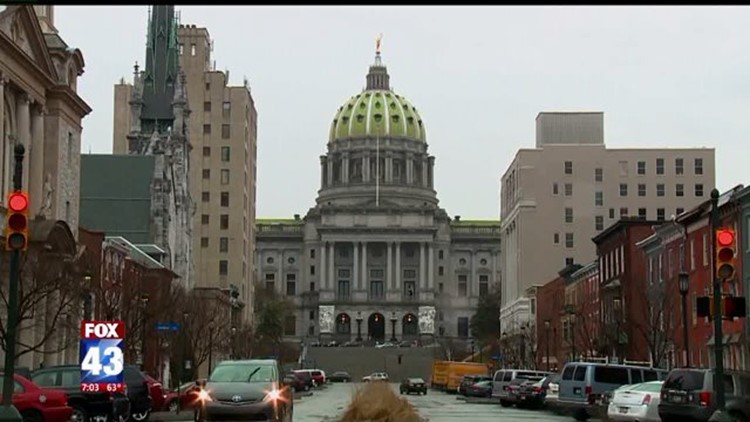Note: This story is the second of two focusing on interest-rate swaps used by governments and school districts in Pennsylvania. The first story, which can be viewed here, focuses on the impacts. This story focuses on the debate to ban them.
It’s not as simple as going to Hollywood Casino and betting it all on black. But, some state lawmakers say government entities and school districts are making risky decisions with your tax dollars that amount to gambling. They want the practice banned.
A bipartisan group of lawmakers is targeting the use of complicated interest-rate “swaps” among local governments and school districts.
A report by former Auditor General Jack Wagner earlier this year described swaps this way: “Swaps are financial instruments that form a contract between a debt-financing entity and an investment bank, speculating on the direction interest rates will move, as well as other unpredictable factors. Specifically, the party to the contract that guesses correctly about whether interest rates will go up or down gets paid by the party to the contract that guesses incorrectly.”
“We think for public money, that’s a form of gambling that shouldn’t occur. It may be appropriate in the private sector but not for taxpayer funds,” says state Sen. Rob Teplitz (D-15th).
Teplitz has two concerns: the horror stories of swaps gone wrong and the philosophical aspect of the risk associated with these deals involving public money.
The State College Area School District agreed in January to pay its lender, the Royal Bank of Canada, $9 million over the next five years to terminate a swap agreement, citing dramatic changes in the economy. The district had planned to build a high school, but that never even happened.
“We profoundly regret that from inception to termination, many millions of dollars will have been spent on this transaction with no benefit to public education,” a press release from the district’s Board of School Directors says. “While this is a difficult outcome to accept, we are asking for the community’s support as we put this expensive chapter in the District behind us.”
It’s a chapter to which some lawmakers don’t want to see a sequel.
“Essentially from government entities, core agencies, that are using taxpayers’ monies, you’re gaming. You’re gambling with those monies,” says state Sen. Mike Folmer (R-48th).
According to the Pennsylvania Department of Community and Economic Development, more than $17.25 billion in public debt is tied to swaps.
While some of those deals likely will benefit taxpayers, some will not.
The call to ban them grew out of a Senate investigation into Harrisburg’s botched incinerator deal, in which at least eight swap agreements were entered into, according to a January 2012 forensic investigation.
But, York County Commissioner Chris Reilly says a ban goes too far.
“Of the interest rate swaps that we’ve participated in, we’ve done fairly well, bringing the county millions of dollars,” says Reilly, who acknowledged the concerns lawmakers had about the swaps that have gone awry. “It would put us at a disadvantage, I think. But, I certainly understand all the horror stories and the motivation behind these people that want to see these things go away.”
Eric Epstein, who heads up the watchdog group Rock the Capital, says he’d rather see reforms and more accountability (on the part of lenders and unelected boards and commissions) than an outright ban.
“Some folks just don’t have the cred, They just don’t have the skill sets to get involved in complicated financial deals,” says Epstein. “If you have the financial savvy, you should look at doing a swap. They can be a good tool. They can also be a poison pill.”
The proposed ban does not affect state agencies, though Teplitz acknowledged that could be a “next step.” The senators plan to hold hearings on the issue this fall.



